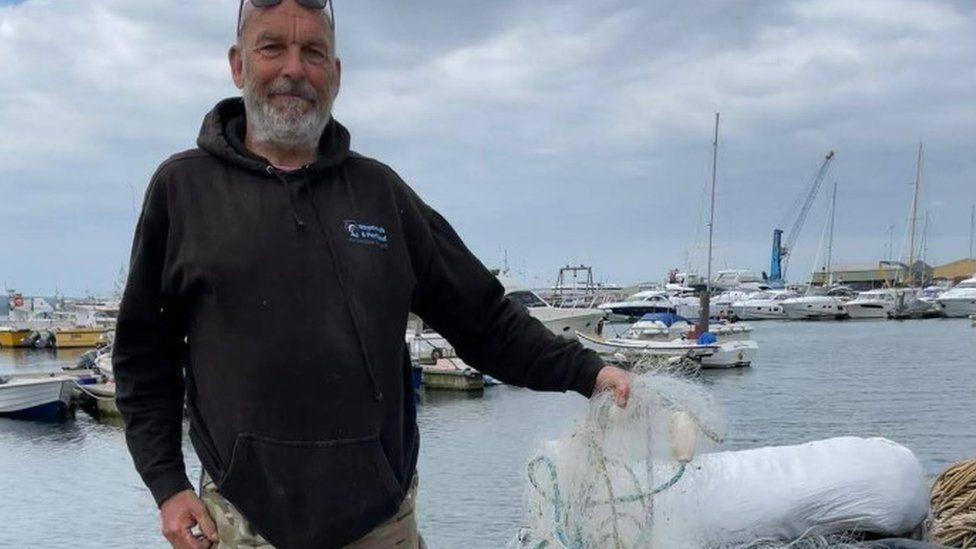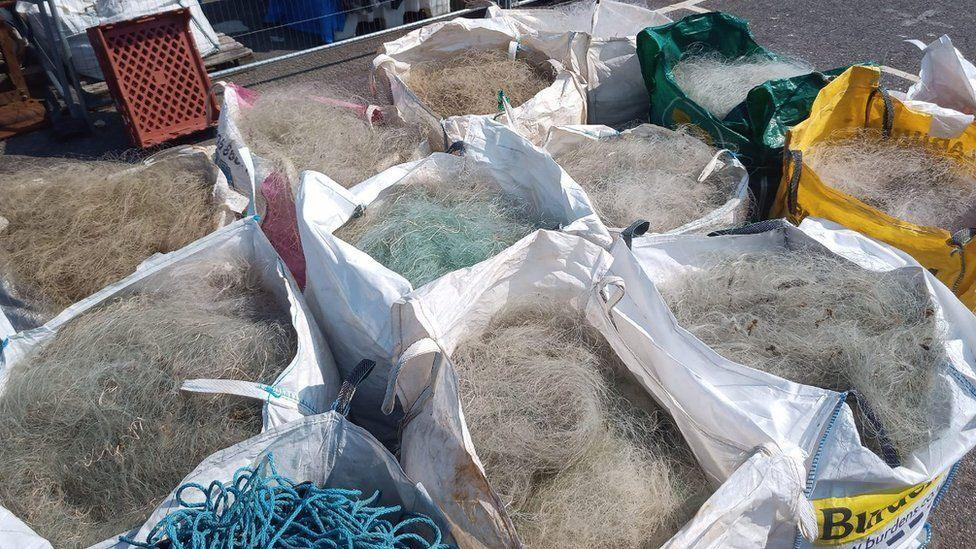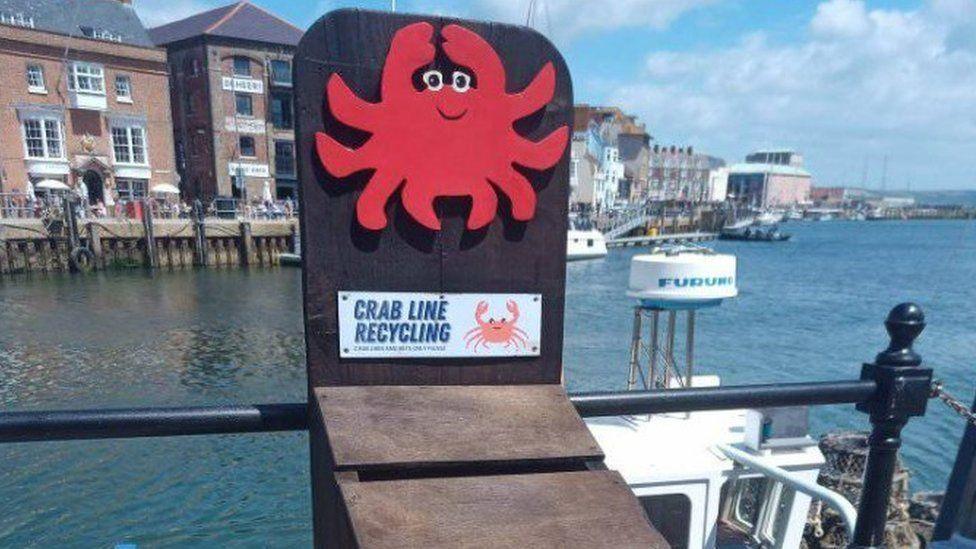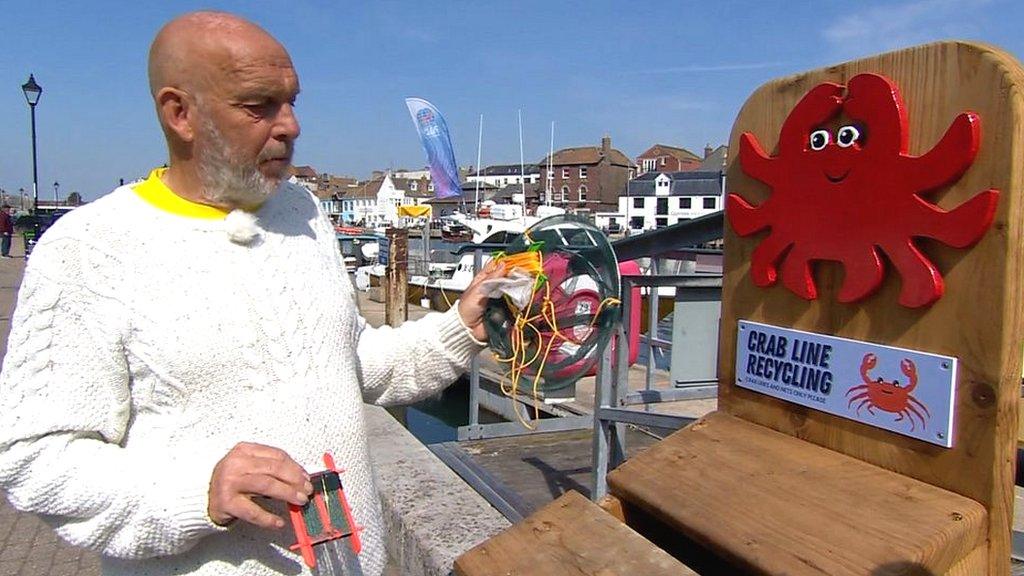Harbour recycling bins give fishing nets second life

Volunteer Dave Taylor says the nets are sent to be made into new items
- Published
Dedicated bins for fishermen's nets have been introduced in a Dorset harbour to stop them being illegally dumped at sea or sent to landfill.
The scheme in Poole collects nylon gill nets - a wall of netting that hangs in the sea to catch fish that swim into it.
It has been set up by the Weymouth & Portland Marine Litter Project together with the Poole & District Fisherman's Association.
Since May, more than one tonne of net, whelk pots and rope has been recycled after being deposited in the bins.

The abandoned fishing nets are bagged up and sent off to be shredded and turned into a thread which can be used to make clothes
Dave Taylor, who founded the volunteer-run organisation, said: "The fishermen discard hundreds of metres of net every season and it usually ends up being burnt, sent to landfill or illegally dumped at sea.
"The aim of the scheme is to increase sustainability of the Dorset fishing industry and remove the need to dump net illegally."
The nets are sorted at the group's hub in Weymouth Harbour before going to Exeter where they are batched up and sent to be made into new items.
Gill net is a fine net very much like fishing line used in angling and is "therefore very hard to recycle and almost nobody as far as we know does it in the UK except the scheme we are in", Mr Taylor said.
"It's turned into a nylon thread called econyl which is then used to make clothing, it can be recycled over and over so the clothing is also recyclable."

Bins on Weymouth's harbourside are already in place for unwanted crabbing lines
Following the scheme's success, the group is setting up recycling bins for end-of-life fishing gear, net and rope at Mudeford Harbour in Christchurch.
The volunteer-run group already has recycling bins for crabbing lines and plastics on Weymouth Harbour and toy boxes for people to borrow and return beach toys at the resort's beach.
Follow BBC South on Facebook, external, X (Twitter), external, or Instagram, external. Send your story ideas to south.newsonline@bbc.co.uk, external or via WhatsApp on 0808 100 2240, external.
- Published28 April 2022
